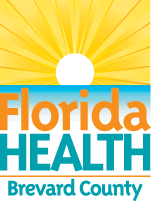It's a New Day in Public Health.
The Florida Department of Health works to protect, promote, and improve the health of all people in Florida through integrated state, county, and community efforts.
Florida Department of Health in Brevard County Issues FAQ Flood Waters Pose Health Risks
September 10, 2017

September 10, 2017
Florida Department of Health in Brevard County Issues Frequently Asked Questions: Flood Waters Pose Health Risks
Contact:
ESF 8 Desk
(321) 637-6675
Brevard County, Fla. — Storms can cause flooding. Skin contact with flood waters does not, by itself, pose a serious health risk. However, health hazards are a concern when waters become contaminated with bacteria and viruses.
Florida Department of Health in Brevard County (DOH-Brevard) recommends the following precautions to prevent possible illness from flood waters:
- Basic hygiene is critical. Wash your hands with soap and either disinfected or boiledand cooled water, especially before preparing or eating food, after toilet use, after participating in flood cleanup activities, and after handling articles contaminated with flood water or sewage.
- Avoid eating or drinking anything that has been contaminated with flood waters.
- Do not wade through standing water. If you do, wash and put on clean clothes.
- Avoid contact with flood waters, especially if you have open cuts or sores. If you have any open cuts or sores and contact flood waters, wash the area well with soap to control infection. If a wound develops redness, swelling, or drainage, seek immediate medical attention. Residents who sustain lacerations and/or puncture wounds and have not had a tetanus vaccination within the past 5 years require a tetanus booster.
- If sewage backs up into your house, wear rubber boots and waterproof gloves during cleanup. Absorbent household materials, such as wallcoverings, cloth, rugs, and drywall, should be removed and discarded since they cannot be properly disinfected. Hardsurfaced walls and floors, food contact surfaces, such as counter tops, refrigerators, and tables, and areas where children play should be cleaned with soap and water, followed by a disinfecting solution of 1/4 cup of bleach to one gallon of water. All linens and clothing should be cleaned in hot water or dry cleaned, while carpeting should be steam cleaned if not replaced. For larger items, air dry them in the sun, followed by spraying them with a disinfectant.
If your home is served by a septic tank and your plumbing is functioning slowly or sluggishly, you should:
- Conserve water as much as possible; if you use less water, you will increase thechance that there will not be any septic problems. This would include minimizing the use of your washing machine by going to a laundromat or using a portable restroom.
- Do not have the septic tank pumped. Exceptionally high water tables might crush a septic tank that was pumped dry or it could pop out of the ground. If the main problem is high ground water, pumping the tank will not solve that problem.
- If you cannot use your plumbing without creating a sanitary nuisance, such as sewage on top of the ground, consider renting a portable restroom for a temporary period or moving to a new location until conditions improve.
- Do not have the septic tank and drainfield repaired until the ground has dried. Often systems will function properly again when dry conditions return. Any repair must be permitted and inspected by DOH-Brevard.
For more information, please contact The Florida Department of Health in Brevard County at 321-633-2100 orwww.brevardeh.com or visitwww.floridahealth.gov orwww.floridadisaster.org.




Connect with DOH